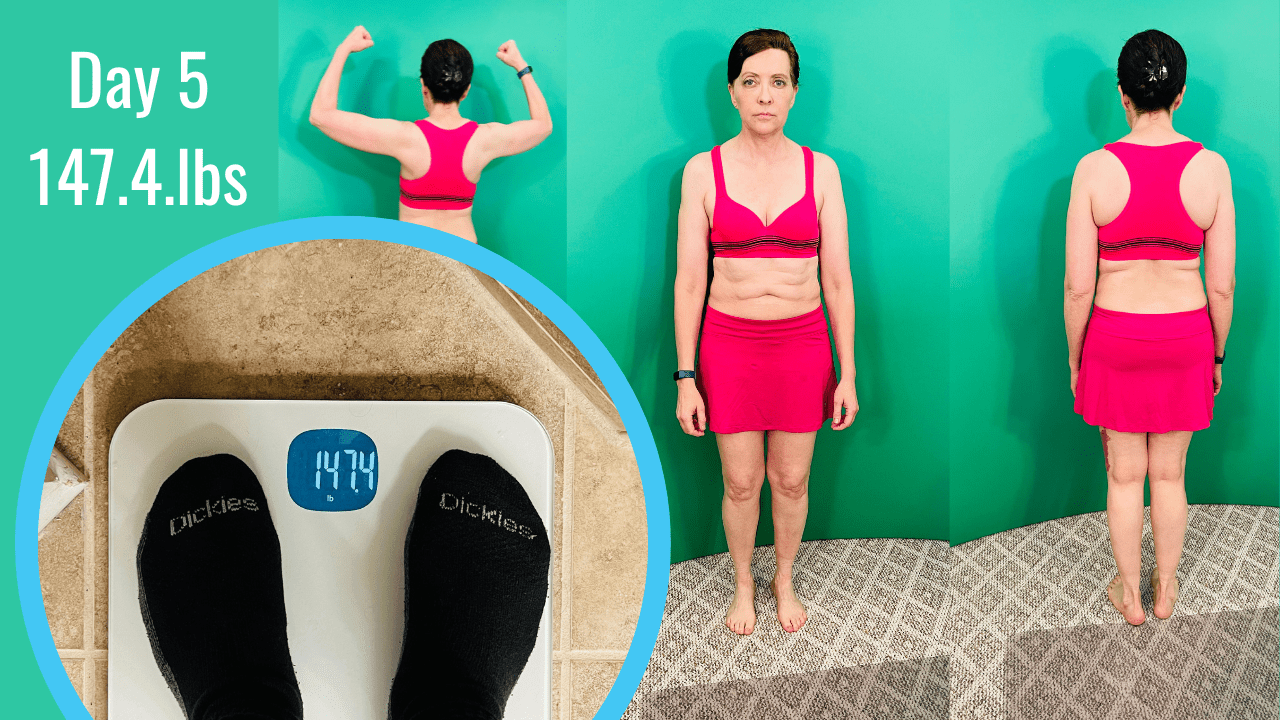Why Intermittent Fasting for Burnout Recovery
Intermittent fasting should be seen as just one potential tool in a broader strategy for addressing burnout. The key is to check with your doctor before beginning a program that will affect your health.
Before I began my fasting journey, I had an annual checkup and had the doctors do all my blood work. I had a colonoscopy, and a mammogram and got a clean bill of health to begin. I spoke with my general practitioner about my plan to add intermittent fasting and daily exercise to my routine. My doctor who knows my health and history, gave me the go-ahead and thumbs up.
Consult Your Medical Professional
Note: I’m also using My Chart, which is a monitoring app between me and my doctors. The app tracks all my appointments, my notes, the doctor’s notes, any of my questions, and any prescriptions they give me. It’s also connected to CVS, where I have my prescriptions filled if needed. This way, all my medical records, bills, upcoming appointments, etc. are in one place.
What is Intermittent Fasting?
Intermittent fasting (IF) is an eating pattern that involves alternating periods of fasting with periods of eating. It does not prescribe specific foods to eat but rather focuses on when to eat. There are several popular methods of intermittent fasting, including:
16/8 Method: This method involves fasting for 16 hours each day and restricting your eating to an 8-hour window. For example, you might eat between 12:00 PM and 8:00 PM and fast from 8:00 PM to 12:00 PM the next day.
5:2 Method: In this approach, you consume your regular diet for five days a week and significantly reduce your calorie intake (usually around 500-600 calories) on the other two non-consecutive days.
Eat-Stop-Eat: This method involves fasting for a full 24 hours once or twice a week. For example, you might fast from dinner one day until dinner the next day.
Alternate-Day Fasting: This approach alternates between days of regular eating and days of fasting or consuming very few calories.
The Warrior Diet: This diet involves fasting for 20 hours and eating a large meal within a 4-hour eating window in the evening.
Health Benefits of Fasting
Intermittent fasting has gained popularity due to several potential health benefits, which may include:
Weight Loss: Intermittent fasting can help reduce calorie intake, leading to weight loss if done consistently. During fasting periods, the body may also tap into stored fat for energy.
Improved Insulin Sensitivity: IF can help lower insulin levels and improve insulin sensitivity, reducing the risk of type 2 diabetes.
Reduced Inflammation: Some studies suggest that intermittent fasting may reduce markers of inflammation, which are linked to various chronic diseases.
Heart Health: It may lead to improvements in heart health by reducing risk factors like high blood pressure, cholesterol levels, and triglycerides.
Brain Health: Some animal studies suggest that intermittent fasting may have neuroprotective effects and potentially promote brain health.
Longevity: Research on animals has shown that fasting may extend lifespan, although more human studies are needed to confirm this effect.
Effects of Fasting
While the effects can vary from person to person, the benefits of intermittent fasting are known for improved mental clarity, focus, and mood brightening during fasting periods.
During the detox phase, the body devours fat cells and removes toxic buildup. During this time it is possible to experience irritability or fatigue. It’s important to realize the benefits outweigh the symptoms during the reboot phase.
It’s important to note that intermittent fasting may not be suitable for everyone, especially those with certain medical conditions or specific dietary needs. Before starting any fasting regimen, it’s advisable to consult with a healthcare professional or registered dietitian to ensure it is safe and appropriate for your individual circumstances. Additionally, staying hydrated and consuming balanced, nutrient-dense meals during eating windows is crucial for overall health while practicing intermittent fasting.

Recommended Resources:
Mel Robbins Podcast on Intermittent Fasting
Fitbit Charge 6 – Premium Membership (Track Your Progress)
Fasting Tracker
Fast. Feast. Repeat.: The Comprehensive Guide to Delay, Don’t Deny® Intermittent Fasting
Delay, Don’t Deny: Living an Intermittent Fasting Lifestyle
Life in the Fasting Lane: How to Make Intermittent Fasting a Lifestyle
MCT Oil – Appetite Suppressant
Himalayan Salt
Daily Progress
* As Amazon Associates, we earn on qualifying purchases. Assume all links are affiliate links. We have sponsors to pay for all our productions.

















